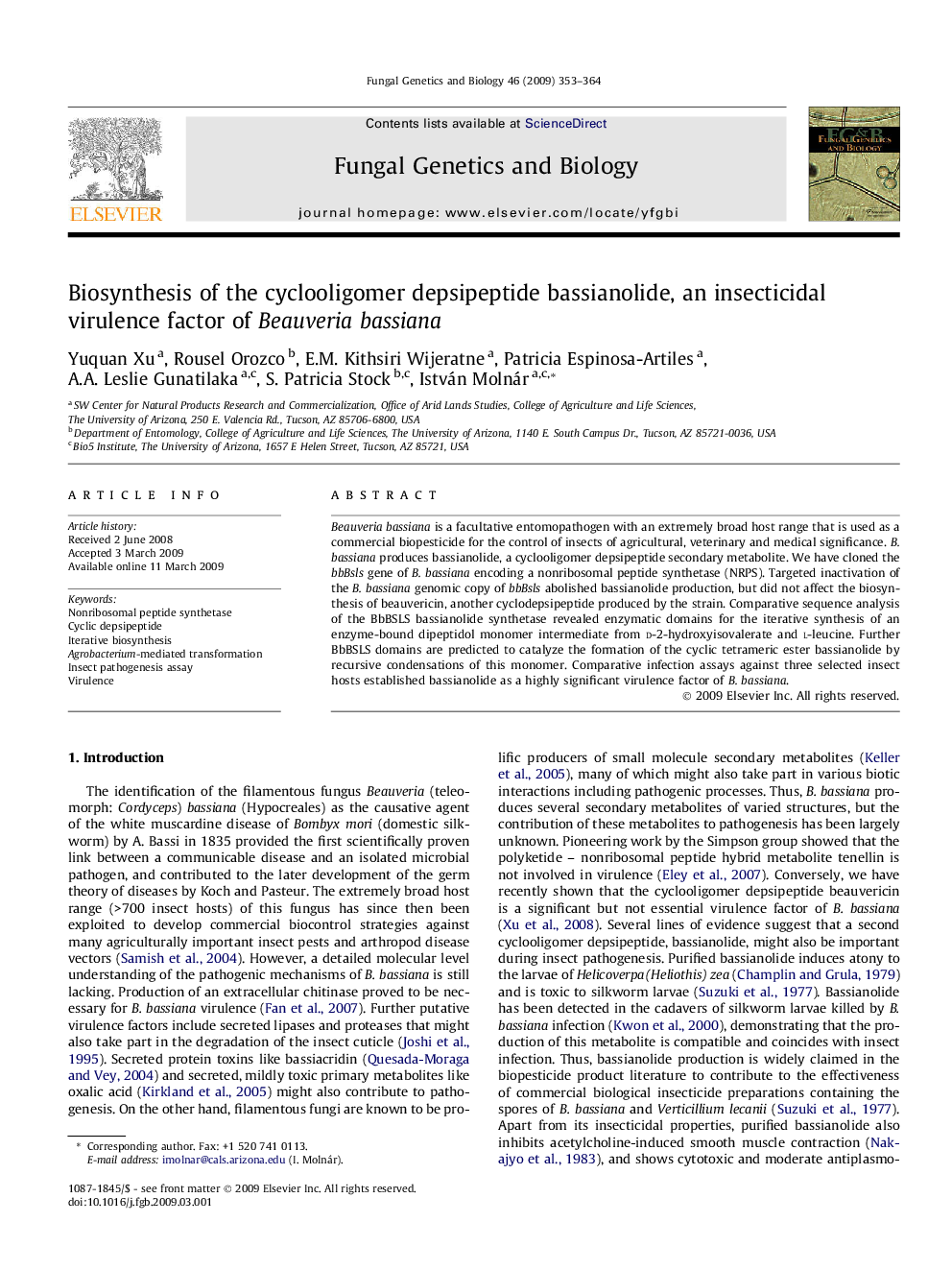| Article ID | Journal | Published Year | Pages | File Type |
|---|---|---|---|---|
| 2181306 | Fungal Genetics and Biology | 2009 | 12 Pages |
Beauveria bassiana is a facultative entomopathogen with an extremely broad host range that is used as a commercial biopesticide for the control of insects of agricultural, veterinary and medical significance. B. bassiana produces bassianolide, a cyclooligomer depsipeptide secondary metabolite. We have cloned the bbBsls gene of B. bassiana encoding a nonribosomal peptide synthetase (NRPS). Targeted inactivation of the B. bassiana genomic copy of bbBsls abolished bassianolide production, but did not affect the biosynthesis of beauvericin, another cyclodepsipeptide produced by the strain. Comparative sequence analysis of the BbBSLS bassianolide synthetase revealed enzymatic domains for the iterative synthesis of an enzyme-bound dipeptidol monomer intermediate from d-2-hydroxyisovalerate and l-leucine. Further BbBSLS domains are predicted to catalyze the formation of the cyclic tetrameric ester bassianolide by recursive condensations of this monomer. Comparative infection assays against three selected insect hosts established bassianolide as a highly significant virulence factor of B. bassiana.
